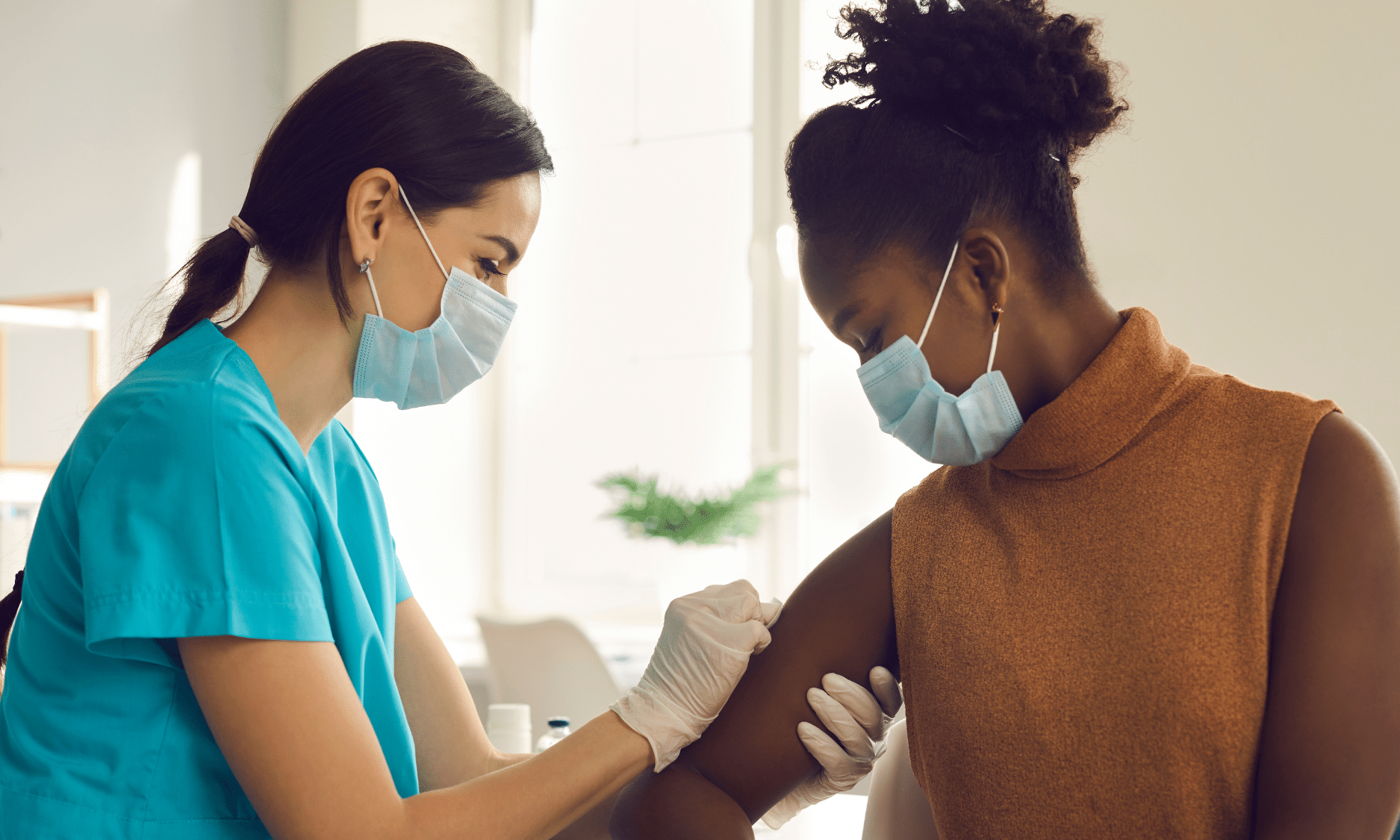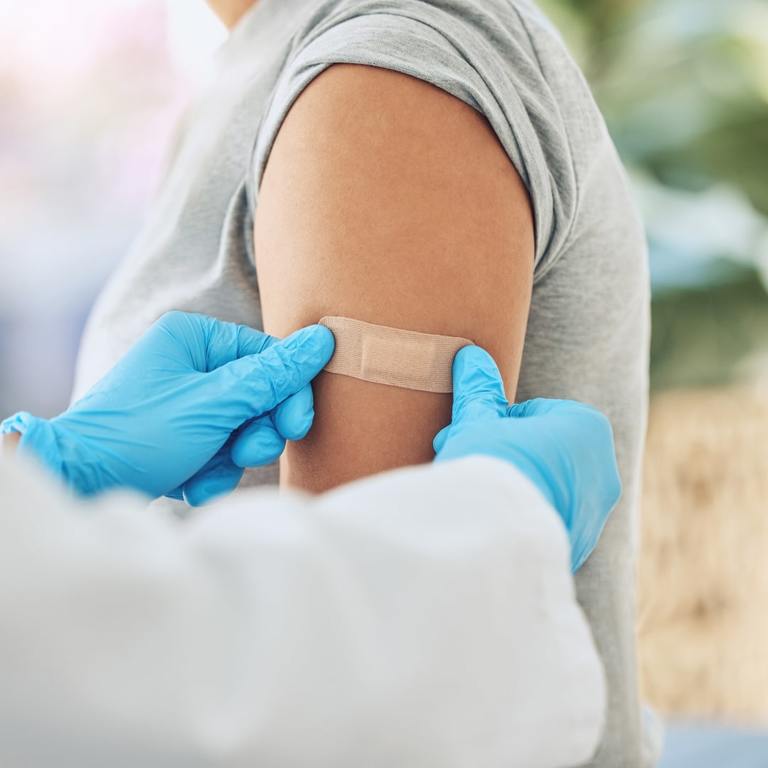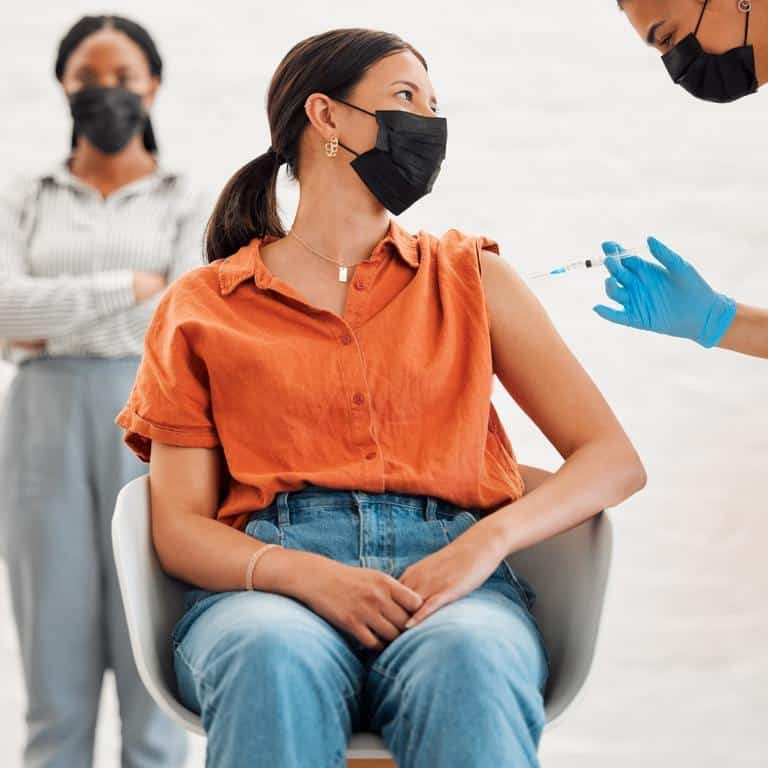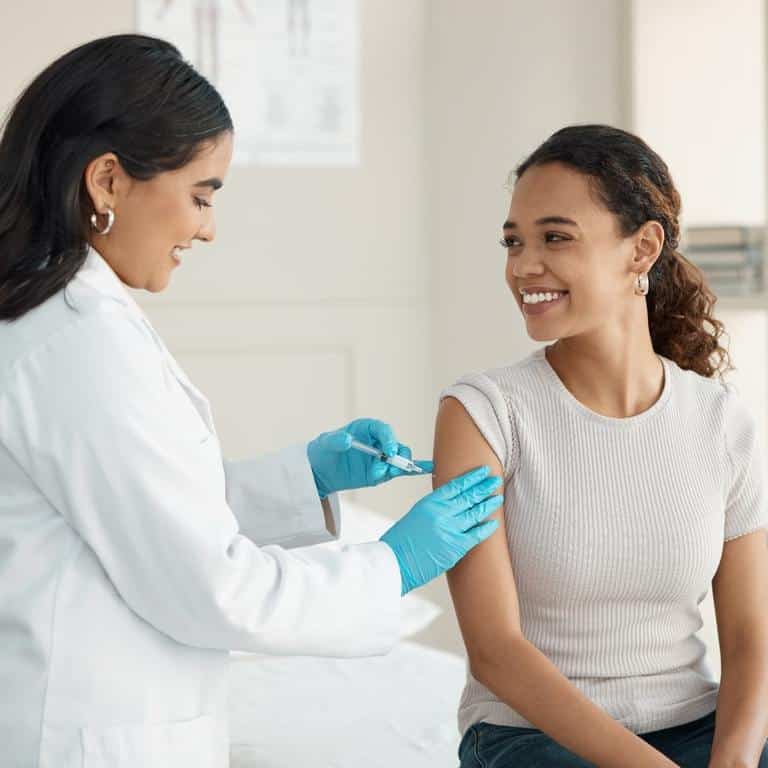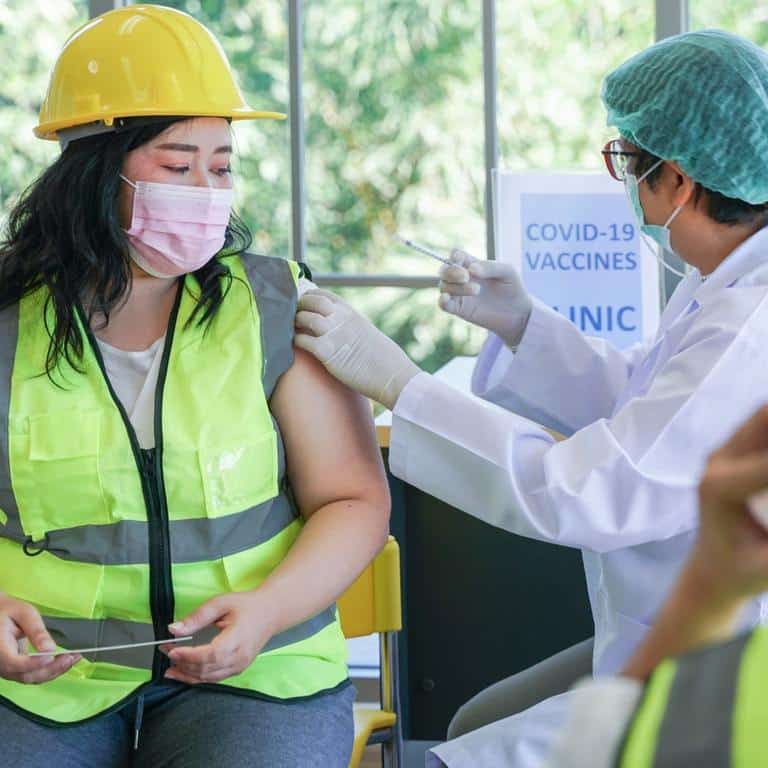Get Peace of Mind & Reduce Sick Time.
We make on-site flu shots and vaccinations easy for happier employees and a healthier workplace.
Shield your workforce with easy and accessible shots.
Why Choose On-Site Flu Clinics & Vaccinations?
Prevention is the cornerstone of supporting a thriving work environment. From weathering flu season to battling public health crises, Discovery Health Services ensures healthy employees and protects company productivity.
Our on-site flu shot clinics and vaccination programs provide a host of benefits for both your employees and your business.
Competetive Advantage
Say goodbye to time-consuming trips to vaccination centers. With on-site services, our top-talent medical team comes directly to your workplace, saving your employees valuable time and minimizing disruptions to their workday.
Enhanced Engagement
By offering vaccinations on-site, we make it easy and accessible for employees to get immunized. This leads to higher vaccination rates, significantly reducing the risk of flu outbreaks in your workplace and promoting a healthier environment.
Cost Effective
Beyond the obvious convenience, our on-site flu shot programs are also highly cost-effective for businesses. By reducing the likelihood of flu-related absences, you’ll see a notable decrease in lost productivity and healthcare costs.
Our On-Site Flu Shot Program
Deliver a seamless and stress-free vaccination experience to your workforce.
Customized Scheduling for Your Convenience.
We understand that every company has unique needs. That’s why we work closely with your team to determine the most suitable time and date for the vaccination event. Whether it’s during regular office hours or a special company event, we adapt to your schedule.
Comprehensive Reporting and Data Analysis.
After the event, we will provide your company with detailed reports on participation rates and other essential data. This information can help you assess the program’s success and guide future wellness services and initiatives.
Experienced and Compassionate Medical Team.
Our certified medical professionals administer flu vaccinations with precision and care. They will also take the time to address any questions or concerns your employees may have, ensuring everyone feels comfortable and informed about the flu shot.
Experience the Discovery
Choosing Discovery Health Services for your on-site flu shot and vaccination delivers unrivaled expertise and an experience that both your workers and business can appreciate.
Accredited and Certified
Our top-talent medical team is fully accredited and certified, ensuring the highest standards of care and professionalism during every interaction.
Tailored Solutions
Each company has distinct requirements. That’s why we develop personalized wellness solutions that align with your company culture, goals, and budget.
Proven Track Record
Our programs consistently deliver results for companies of all sizes. Join satisfied clients who have experienced the value of a healthier workforce.
Flu Shots
Fight against flu season with on-site vaccinations and shots and reduce sick days and disruption.
Offering flu shots to employees results in fewer employee sick days, increased productivity, and improved employee retention. Happy and healthy employees work harder and are loyal to their company – a fact backed by years of research.
Invest in workplace flu clinics to help your organization today.
Other Immunizations
Save your staff time and save your organization money by providing a wide variety of vaccines on-site.
Discovery Health Services staff provides vaccination clinic coordination assistance and even handles full-scale coordination for clients with multiple offices and locations.
Vitamin Injections
Strengthen your workforce immunity with natural COVID-19 and flu shot alternatives.
Immune system-boosting vitamin B-12 plus vitamin C shots are available for those who prefer natural options and take place alongside traditional on-site clinics, ensuring a cost-effective and impactful wellness program for your entire workforce.
The ability to choose shows respect for the preferences of all workers and keeps health accessible.
COVID-19 Services
Whether your team includes 25 or 2,500 employees, managing the COVID-19 pandemic at work requires persistence and detail.
Keep your employees focused on the work at hand and turn to Discovery Health Services for regular COVID-19 testing and vaccination services at your facility.
How do our rates work?
Healthcare Workers are staffed based on a ratio of 20 PCR tests or 9 Antibody tests per hour per healthcare worker. Clients requesting testing for a duration of time greater than what is needed to test their group as per the above ratio are billed $150/hour in one-hour increments per healthcare worker.
- Rates are based on the number of vaccinations administered at each location/site/office.
- The minimum billable number of immunizations and services in the category requested/ordered will be charged regardless of employee participation as this ensures we can continue to offer competitive rates.
- Any unused vaccinations for which the client was billed will remain available to the client, for administration at our San Diego offices, for 30 days from the date of service (if the client’s account is in good standing).
- Nurses are provided according to established standards and a ratio of one nurse per 25 participants, per hour.
Immunization clinics/events are scheduled in two-hour sessions.
- Clients may request a higher ratio of nurses for their event at a rate of $100/hour per nurse.
- Please estimate participation as accurately as possible to allow us to provide appropriate levels of staff and immunizations for each event.
Interested in
Hosting a Clinic?
Let us do the heavy lifting and contact us for a tailored quote today! difference today!
PROUDLY SERVING THE BEST
Trusted By Industry Leaders







